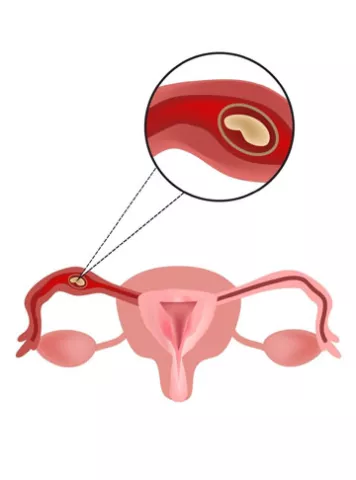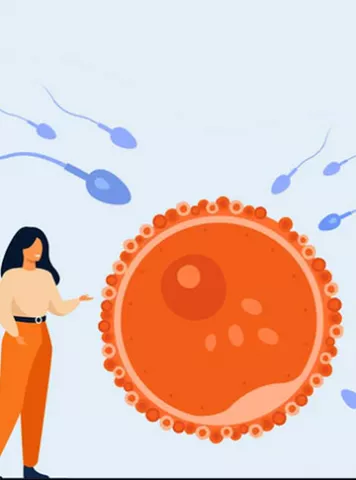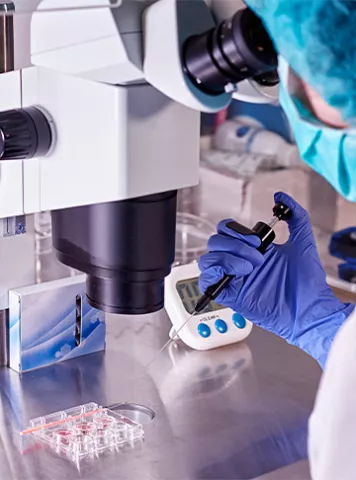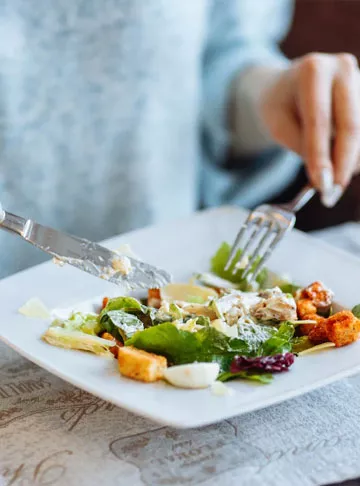Embarking on the journey of fertility treatment, specifically In Vitro Fertilization (IVF), can be both exciting and challenging. As you prepare to welcome a new life into your world, it's crucial to ensure that your body is in its optimal condition for successful conception and implantation. One of the key factors that can significantly impact your IVF success is your diet. In this comprehensive guide, we will walk you through the dos and don'ts of the IVF diet, providing you with valuable insights into what to eat and what to avoid to enhance your chances of a successful outcome.
IVF Diet: A Vital Ingredient for Success
When it comes to maximising your chances of IVF success, your diet plays a pivotal role. A well-balanced and nutrient-rich diet can create an environment in your body that is conducive to conception, embryo development, and implantation. Conversely, making poor dietary choices can potentially hinder your fertility journey.
IVF Success Tips: Diet Matters
The path to IVF success begins with making informed dietary choices. Your IVF diet should be focused on providing your body with the essential nutrients it needs to support a healthy pregnancy. Here are some IVF tips related to your diet:
1. Balanced Nutrition: A well-rounded diet for IVF that is rich in vitamins, minerals, protein, and healthy fats is essential. Opt for a variety of whole foods such as fruits, vegetables, lean proteins, whole grains, and nuts.
2. Hydration: Staying hydrated is crucial for optimal egg quality and uterine lining development. Aim to drink plenty of water throughout the day to support overall reproductive health.
3. Foods to Eat Before Embryo Transfer: Focus on foods that are high in antioxidants, such as berries, leafy greens, and colourful vegetables. These foods can help protect your eggs and sperm from oxidative stress, creating a favourable environment for conception.
4. Best Foods for Implantation: As you prepare for implantation, include foods rich in omega-3 fatty acids, such as salmon and chia seeds. Omega-3s can support a healthy uterine lining and overall fertility. These are considered some of the best foods to help implantation for IVF.
IVF Diet Plan: Nurturing Your Body
Crafting a well-structured IVF diet chart can provide your body with the nourishment it needs to increase your chances of success. Here's a sample IVF diet plan that you can consider:
1. Breakfast: Oatmeal topped with berries and a sprinkle of flaxseeds, providing fibre and antioxidants to start your day. Greek yoghurt with nuts and honey, offering protein and healthy fats for sustained energy.
2. Lunch: Grilled chicken salad with mixed greens, tomatoes, and avocado, providing essential nutrients and healthy fats. Quinoa and vegetable stir-fry, offering a combination of protein and complex carbohydrates.
3. Snacks: Carrot and cucumber sticks with hummus, supplying vitamins and minerals for reproductive health. A handful of almonds, a source of healthy fats and vitamin E, may support fertility.
4. Dinner: Baked salmon with steamed broccoli and brown rice, delivering omega-3 fatty acids and fibre. Lentil soup with whole grain bread, offering protein, iron, and fibre to support reproductive wellness.
Foods to Avoid After IVF Transfer
Once you've undergone the embryo transfer, it's important to be mindful of your food choices. While there isn't a strict list of foods to avoid, it's generally recommended to steer clear of:
- Caffeine and excessive sugar, which may disrupt hormonal balance.
- Processed and fried foods, which can contribute to inflammation and negatively impact fertility.
- Alcohol and tobacco, both of which can have detrimental effects on conception and pregnancy.
Diet During IVF Injections: Navigating Hormonal Changes
The IVF journey often involves hormonal injections to stimulate egg production. Maintaining a healthy diet during IVF injections will help to support your body's response to the medications. Here are the best food to eat during IVF treatment:
1. Protein-rich foods support egg development and overall reproductive health.
2. Complex carbohydrates for sustained energy, aiding in managing hormonal fluctuations.
3. Foods rich in iron, such as leafy greens and lean meats, prevent anaemia and maintain vitality.
Embracing a Holistic Approach
Beyond the physical aspect, it's important to address the emotional and mental aspects of your IVF journey. Incorporating stress-relief techniques such as yoga, meditation, and mindfulness can complement your IVF diet, promoting overall well-being and a positive mindset.
Conclusion
Your IVF journey is a remarkable chapter in your life, and your diet can play a vital role in its success. By following a well-structured IVF diet plan, making wise food choices, and avoiding potential pitfalls, you can create an environment that enhances your chances of successful conception and implantation. Remember, every bite you take is a step closer to realising your dream of parenthood. For personalised guidance and support, don't hesitate to consult our expert fertility team. We're here to stand by you every step of the way.
Consulting the Experts
While this guide provides valuable insights into the IVF diet, every individual's needs are unique. Consulting with a qualified fertility specialist and nutritionist can provide you with personalised guidance tailored to your specific circumstances and health goals.
Frequently Asked Questions
Is milk good for IVF?
To meet the daily essential calcium requirements, patients can consume low-fat dairy items and milk when they are undergoing (IVF) In Vitro Fertilization.
Can I drink tea during IVF?
It is generally recommended that IVF patients should avoid drinking tea, coffee, or any kind of alcoholic beverages and they can have a negative impact on IVF success.
What fruits help with IVF success?
Affordable and easily accessible fruits like berries, pomegranates, avocados, oranges, etc. can also help a lot and contribute to the success of IVF treatment.
Which juice is best for IVF?
Drinking coconut water and beetroot juice is considered highly helpful to improve blood circulation and the flow of oxygen-rich blood to different parts of the body including the uterus.
Articles
2023


Guide to infertility treatments IVF
एक्टोपिक प्रेगनेंसी के लक्षण, कारण और इलाज
प्रेगनेंसी की खबर महिला को का�...
2023


IVF Guide to infertility treatments
टेस्ट ट्यूब बेबी का खर्च कितना आता है (What is the test tube baby cost in hindi)
पिछले कुछ वर्षों में टेस्ट ट्�...
2023


What Causes High Estrogen in Women
Estrogen is a very important hormone in a female’s body. It is especially ne...
2023


How early can a pregnancy be detected in IVF?
The happy news of pregnancy arrives after the successful completion of the fer...
2022


Guide to infertility treatments IVF
थाइरायड असंतुलन के कारण हो सकती है निःसंतानता, आईवीएफ से कैसे हो सकता है।
पिछले कुछ वर्षों में थायराइड �...
2022


पुरूष निःसंतानता का एक कारण वेरिकोसिल आधुनिक तकनीकों से संभव है पिता बनना
पुरूष निःसंतानता शब्द कुछ सा�...


गर्भधारण के लिए कितनी होनी चाहिए शुक्राणुओं की संख्या
निःसंतानता एक ऐसी समस्या बनत�...
2022


आईवीएफ क्या है (IVF Kya Hai) डिटेल में जानिए, आईवीएफ में कैसे होता है गर्भधारण
समय के साथ हमारी प्राथमिकताओ�...
Pregnancy Calculator Tools for Confident and Stress-Free Pregnancy Planning
Get quick understanding of your fertility cycle and accordingly make a schedule to track it
















